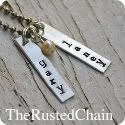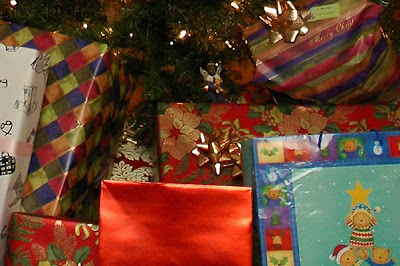--
Horses are not born tame.
Neither are people.
One thing I learned from Velvet, my beloved chestnut mare, is that horses have minds of their own. They know where they want to go, what they do and do not want to do, and if and when they want to cooperate with their human masters. If there is ever to be any partnership, anything of work or play accomplished, any joy or greatness achieved together, an untamed horse will first have to be taught how to surrender their wild and willful ways.
In horseman's terms they call this "breaking" a horse.
In this series, we've been talking about the spiritual concept of
brokenness (
Part 1,
Part 2, and
Part 3), and in my
first post I mentioned that ALMOST all the definitions of the word
broken were negative in some way. Well, here is the single definition that, from my own experience with horses, does not HAVE to be negative.
I remember the first time I saw the movie
Black Beauty
. As a horse-crazy kid, this was the first time I was ever aware that some people could be cruel to animals. I was horrified by the scenes where violent masters left noble horses ruined with dull and broken spirits. Much, much later, as an adult I first read
the book
and then saw the movie
The Horse Whisperer
. What a contrast. The main character of the story was inspired by the life of horse trainer,
Buck Brannaman who deeply understands the equine heart and mind, and who believes in winning a horse's trust to the point that the horse will choose to submit to what his master asks of him. As someone who suffered violence at the hands of an abusive father, he believes in "breaking" horses without violence, and would never dream of doing anything to break their beautiful spirits.
One night, almost four years ago, as the realities of Hero Husband's job loss and the ongoing months without income were keeping me awake into the wee hours of the morning, I stumbled on the story of another horse trainer on a PBS presentation called
Horses in the Forest
.
It was a divine appointment.
It was a deeply personal love letter from my gentle and tender Abba Father directly to me at a moment when I was wrestling with fears large and small.
Tim Carroll is a man who seems like he stepped from the pages of a bygone era. He is in the logging business in Minnesota and Iowa, but he uses teams of draft horses to do the work you would expect modern machines to do. In his description of how he trains a new team of horses, I saw the perfect picture of how God trains us. With Tim's gracious permission, here are his words that are never far from my thoughts in times that are still uncertain:
"When I work with horses, trainin' 'em, my rule of thumb is, 'The only thing consistent is change.' What they have to get used to is that the only thing consistent in their lives is me and everything else around them changes constantly. Horses have a real natural tendency to want to maintain a routine and when you change their routine it causes stress. That's when they react in a manner to escape the danger or whatever if they're not used to it. But if you train them to a point where they know that no matter what they're doin' if they're in your hands you're going to do your best to keep 'em safe, they do real well.
If you can get a horse to the point where you can use verbal commands and you can communicate with 'em without having to manhandle them, it does two things: One, it makes a stronger relationship between you and the horse and it helps your productivity too. By the time I get a draft horse to the stage where I'm puttin' a harness on their back and actually taking them out to work, it's not that big a deal--they've kind of been through everything and they're still connected to me and believe wherever I'm takin' 'em, even if it's scary, it can't be that bad or I wouldn't take 'em there.
If the horse has a relationship with me like this, then I don't have to work so hard to train that horse specifically for every duty because . . . you know, if a pheasant jumps out of a ditch or a garbage bag blows out of the ditch they don’t crawl out of their skin. Not because they're trained to deal with pheasants or garbage bags, but because they trust that when I'm with them everything will work out. Instead of training them specifically for things, it's a lot easier when you're dealing with the variety of things I deal with. If that horse trusts in me, they're a lot more apt to go across that crick or pull that log, let the tree fall and crash or whatever happens in the world, they're a little more apt to rely on me as there to help 'em out."
That is the kind of Master we have.
He allows us to experience life's changes, not to harass us and frustrate us and keep us ever fraught with uncertainty, but to give us ultimate, unshakeable, absolute confidence in the One who holds the reins. He wants us so filled with trust in Him and His goodness that earth and all her squawking pheasants and blowing garbage bags (vivid examples if you've ever been around horses) cannot cause us to break stride or shy off the trail in a frenzy of fear. God patiently trains us to yield our will to His, not to break us down, but to equip us for the work He invites us to do with Him.
When I started this series, I was primarily thinking it would be about what I think brokenness isn't. As I close, I find I am much more intrigued by what I've found brokenness IS. The kind of broken I do want to be is like Tim Carroll's wonderful horses who willingly pour their hearts into serving the master who loves and cares for and protects them.
Buck Brannaman and Tim Carroll are proven horse whisperers, and our loving God is a heart-whisperer. He understands us far better than we understand ourselves, and He lovingly works to woo our hearts to love Him, to win our hearts to trust Him, so that when He asks us to surrender our wild and willful ways, we can gladly submit because He will never break our spirit.
28 “Come to me, all you who are weary and burdened, and I will give you rest. 29 Take my yoke upon you and learn from me, for I am gentle and humble in heart, and you will find rest for your souls. 30 For my yoke is easy and my burden is light.” (Matthew 11:28-30, New International Version, ©2011)
Jesus' words of invitation are the perfect note with which to finish this series. To anyone who is burdened by brokenness in their hearts or lives, their relationships with spouses or children, their homes or finances or dreams, Jesus says, "Come." He doesn't hold our broken places against us, but longs to lift our burdens and in exchange asks us to join Him in a harness that is a perfect fit, light and easy because He does all the heavy lifting.
~ ~ ~ ~ ~ ~ ~ ~ ~ ~ ~ ~ ~ ~ ~ ~ ~ ~
This has certainly not been an exhaustive treatment of all that could be understood about brokenness, but I hope and pray that you dear people who have joined me in the exploration, will have been blessed and encouraged by walking with me as I have tried to learn more.

How has your understanding of brokenness changed, if at all?
How has your view of God been impacted by this discussion?
I am so grateful to Tim Carroll who took time out of his busy day to listen patiently to a stranger's request, and who graciously gave me permission to share his wisdom with you. If you'd like to know more about him, he has a TV show on DirecTV called Rural Heritage, or visit his business website.
________________________
Joining Beki for Fingerprint Friday









